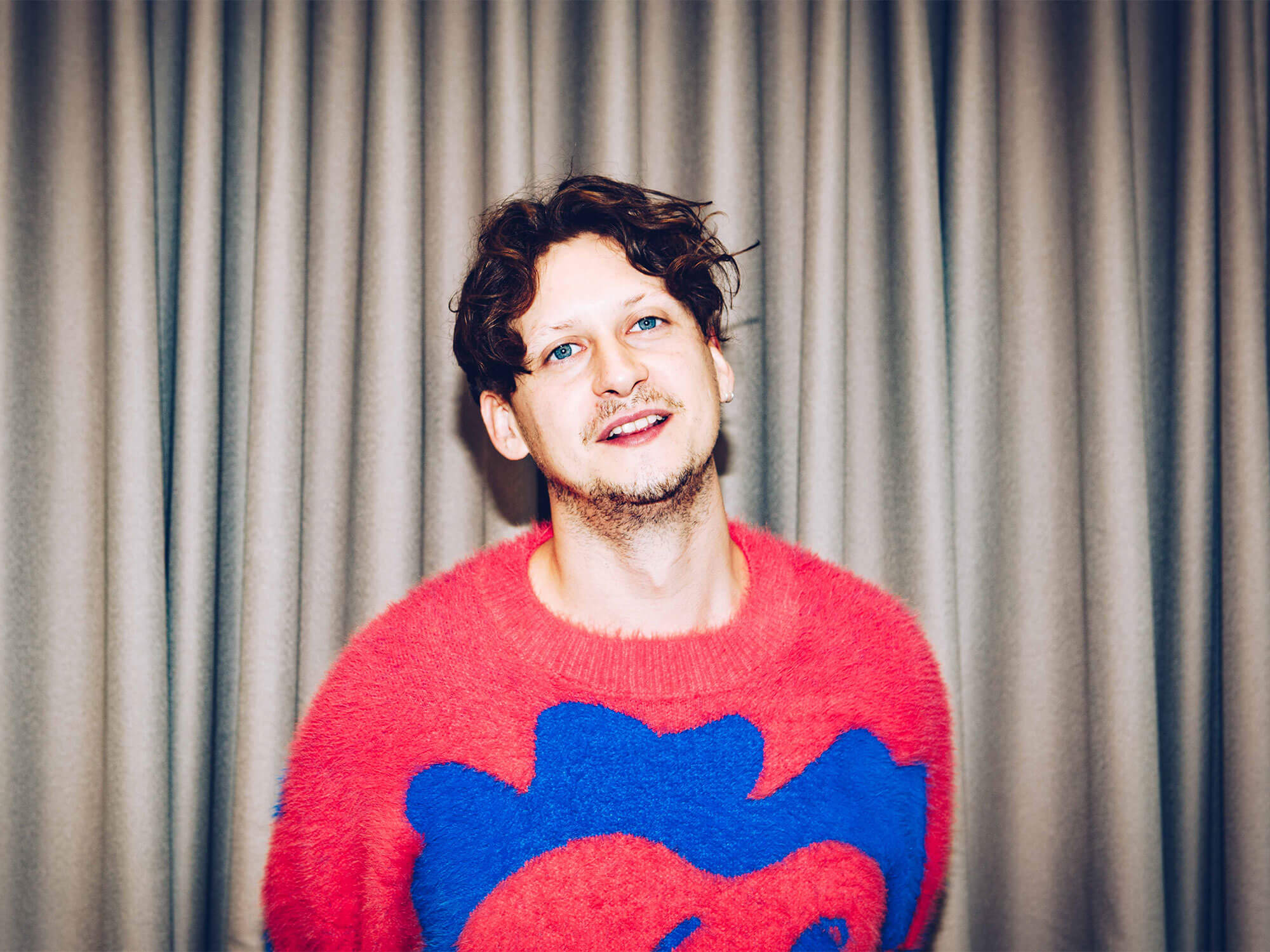
Barry Can’t Swim: “Producers can often overthink – I’m at my best and most creative when I’m underthinking”
Following his debut album, Scottish producer Barry Can’t Swim slates the over-seriousness of dance music, and talks capturing raw moments, combining piano with plugins, collaborating, sampling and more
Josh Mannie aka Barry Can’t Swim. Image: Fiona Garden
Barry Can’t Swim is a man in demand. His DJ set at Lost Village festival this year, for example, was forcibly cut short when an overwhelming number of fans tried to watch him play. Perhaps it’s his jazz-flecked, warm house beats. Perhaps it’s his Scottish drawl, the floppy hair, the lovable sense of humour. I mean, honestly, at least three people on Hinge this week have told me they’re “looking for Barry Can’t Swim”.
His momentous debut album out now on Ninja Tune, When Will We Land?, is one big party (not a pool party, obviously). Its 11 rich contemporary dance tracks seamlessly flow from one to the other, folding diverse samples into delicious synths, moving from deep house into jazz. His most bold output to date, it bursts at the seams with delights both emotional and danceable in equal measure, keeping the party firmly afloat.
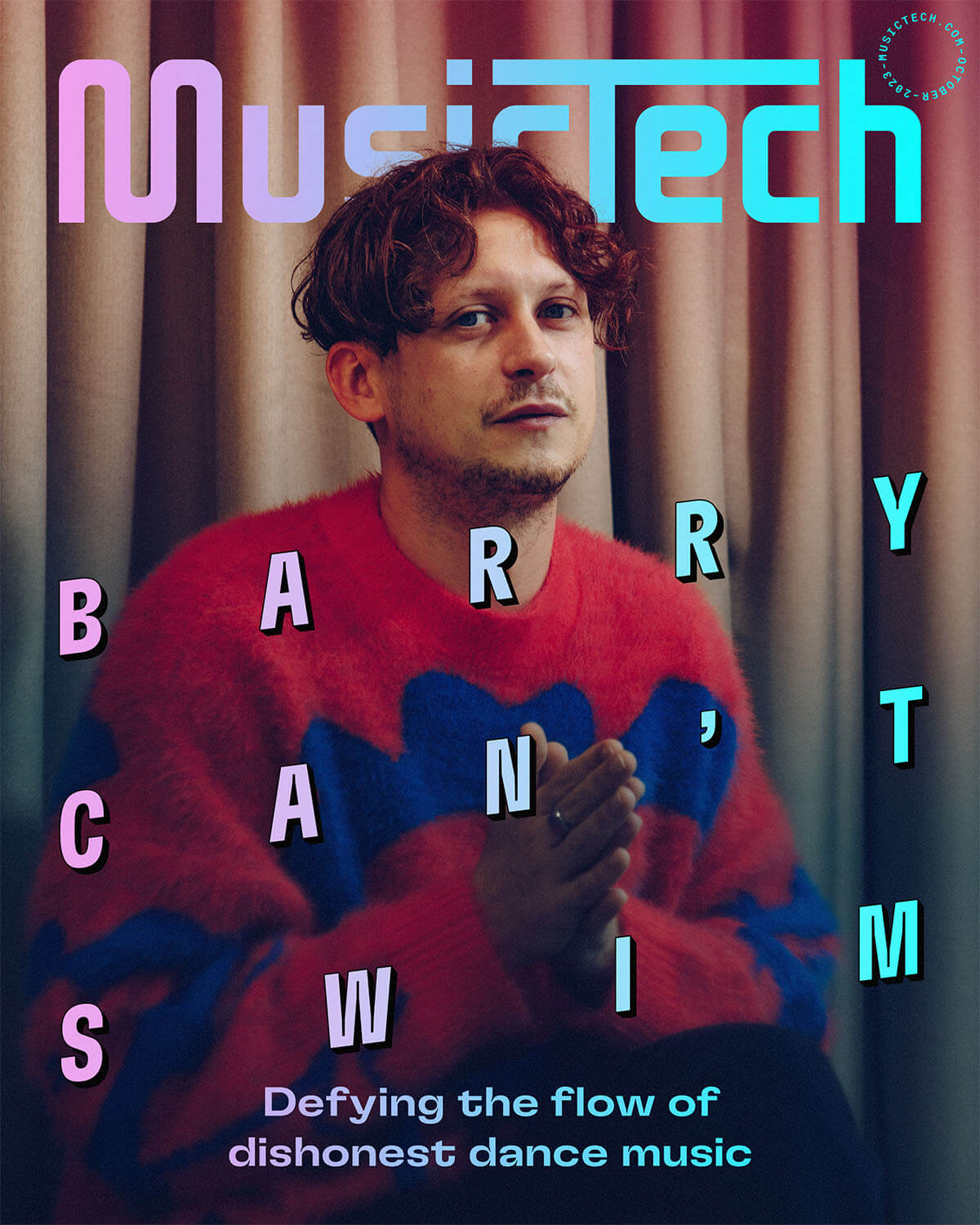
The Brit is abroad across the pond in LA, but we catch a rare moment with Barry – real name Josh Mannie – over Zoom during his first US tour. When we say hello, he’s just received the news he’s going to feature in the EA FC 24 soundtrack. He looks to be asking the same question as his album title – ‘when will I land?’
“It feels amazing,” says Josh. “But I don’t feel like I’ve had a moment to process any of it. One thing happens and you’re like, ‘that’s amazing’, then the next day there’s something else.”
The last two years have been a whirlwind for the Edinburgh-born producer: sold-out shows, fifteen singles, and huge support worldwide. It’s been a formative time, too: Josh’s been able to show the world his personality through his music, which oozes a compelling, carefree sense of fun.
His live shows this summer, he says, have included just four or five original tracks. The rest are no-nonsense covers of absolute dance classics, such as Junior Senior’s 2002 hit Move Your Feet and Todd Terje’s 2012 track, Inspector Norse. Purists might grumble, but getting the party going and keeping the vibe up is what dance music’s all about, Josh insists. You’ve got to remember, Barry Can’t Swim quite proudly doesn’t take himself too seriously.
“Electronic music, for me, has the tendency to not be that inclusive and actually a bit too cool. Sometimes, you forget that the essence of electronic music is: ‘We want to dance. We want to have a good time. People want to have fun.’ I like to bring that to the table.”
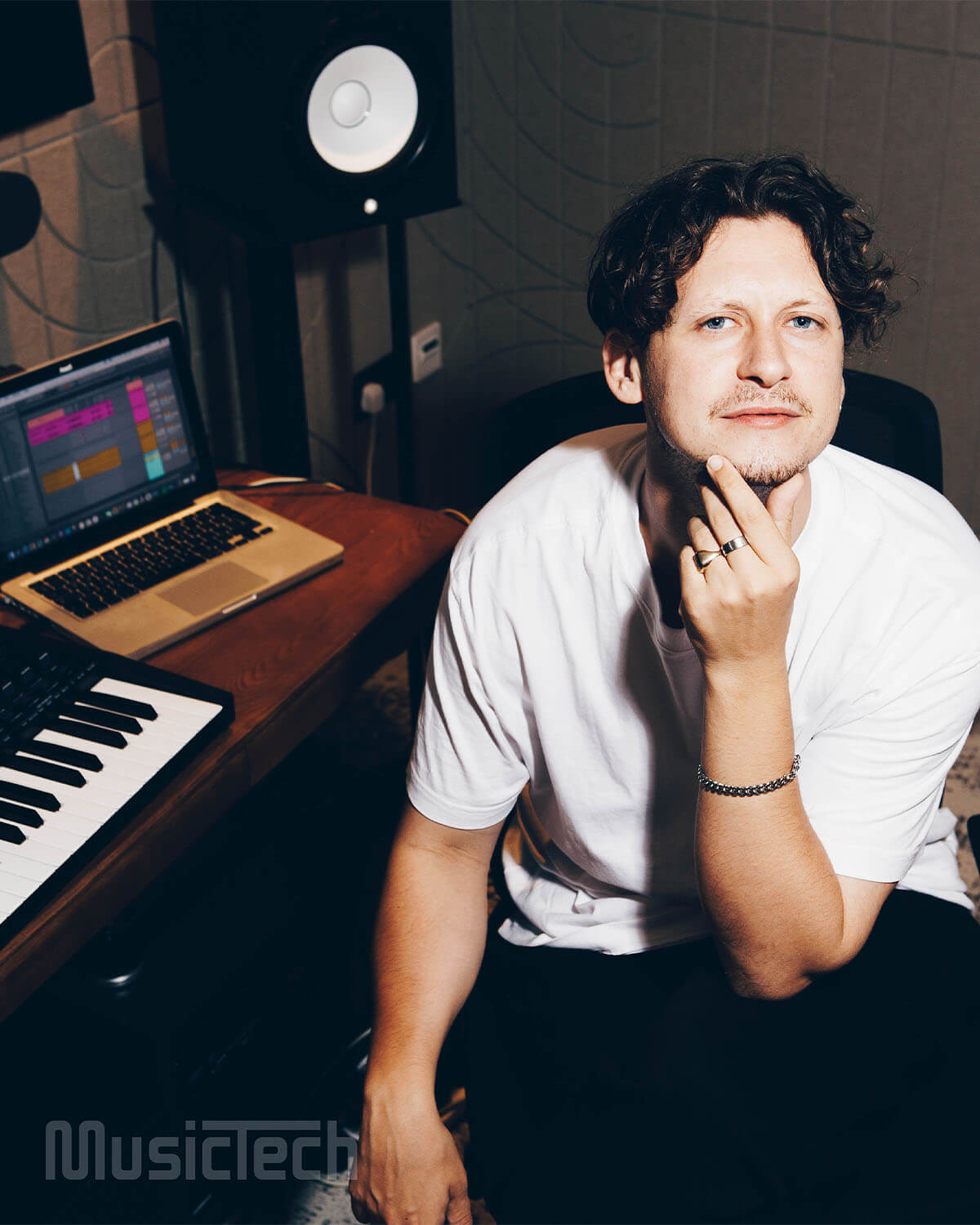
“It’s important, first and foremost,” Josh says, “[that] you’re enjoying what you’re doing. People can very often overthink – I’ve been guilty of it – and that’s the last place you want to be when you’re making music.
“I’m at my best and my most creative when I’m almost ‘underthinking’ and ideas are just flowing. If you’re approaching production like that, your personality is naturally going to come through.
“Electronic music, for me, has the tendency to not be that inclusive and actually a bit too cool,” he laughs. “Sometimes, you forget that the essence of electronic music is: ‘We want to dance. We want to have a good time. People want to have fun.’ I like to bring that to the table.”
Not only does When Will We Land? feel carefree, but at times, it can be unfiltered and raw. This is a big part of Josh’s ethos, to capture a special moment and, instead of over-processing or re-recording it, leave it in its most authentic, impactful state.
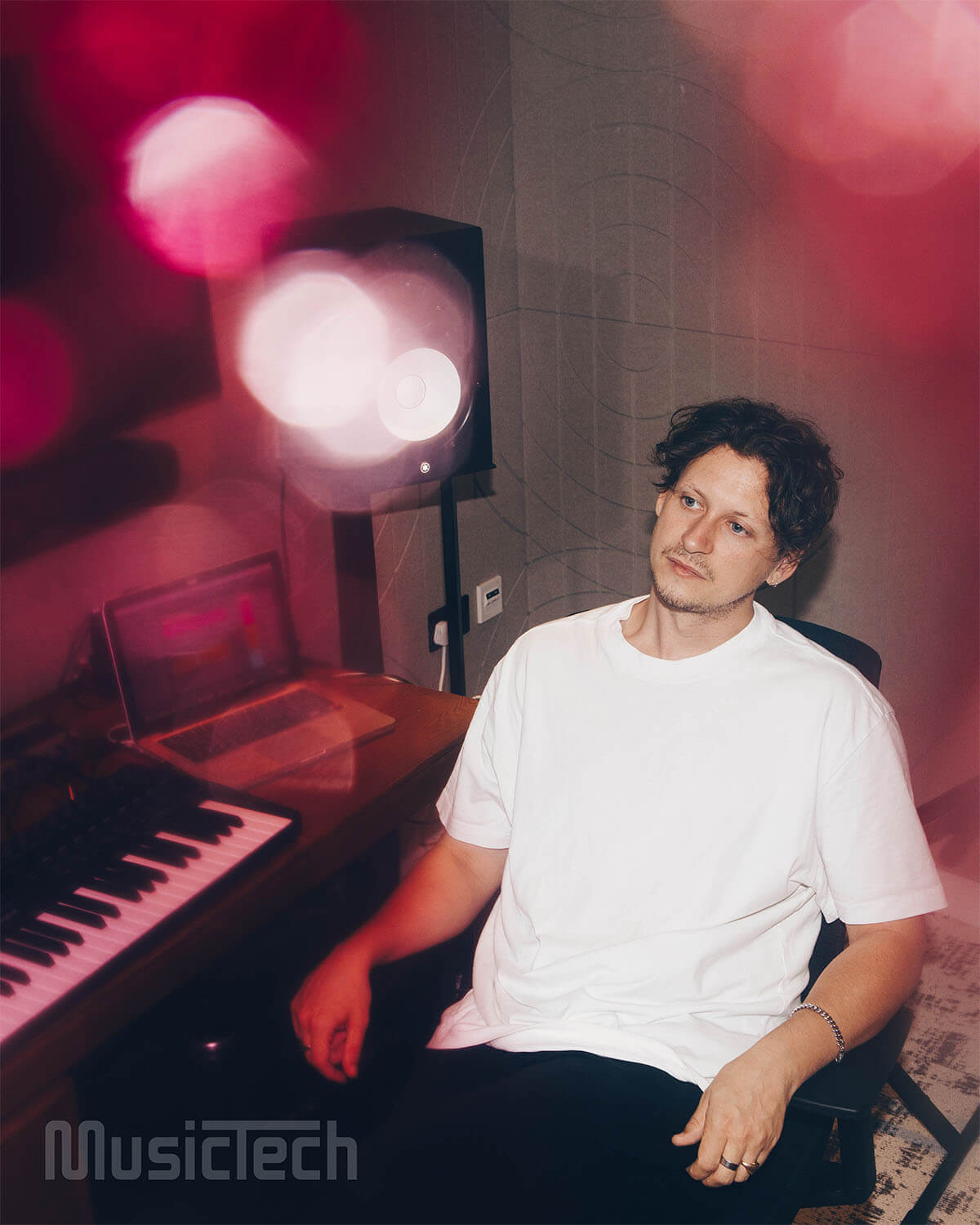
One example of this is the poem found in Deadbeat Gospel, the second track on the album. Over a piano-driven rave house beat, you hear the raw, phone-recorded voice of a Northern Irish poet called somedeadbeat from Derry talking about the “religious experience” of going to a rave. “Celebrate the fact that the weekend has landed,” one line says.
He’s Josh’s old university friend who, at the time of recording, he hadn’t seen for about six years.
“He came down to my show last year in Dublin,” he says. “Afterwards, we’d all been just getting a bit pissed, to be honest – a bit steamin’ – and we went down to the canal in the centre of Dublin to catch up. He says to me, ‘I’d love to, like, read this poem for you’.
“I just quickly got my phone out and recorded it. In the voice note, there are people going past, there’s an interaction with someone else that’s just walking past on the canal at that time at like four in the morning. It was really raw and organic.”
Although the two did head into a studio to re-record the vocal cleanly, it was the raw original that made the cut.
“You can hear him pouring his heart out. The clean version just didn’t have any of the emotional pull at all,” he says. “It just didn’t sound anywhere near as inviting emotionally.
“Listeners are smarter than people give them credit for,” Josh says. “People can tell when music is sincere and real. That’s the beauty of this – probably technically, it’s worse, but as a listen, it’s so much more because it’s real. You can’t recreate it.”

Another true-to-life part of the album are the piano parts found in the likes of How It Feels, Woman, and Sunsleeper. Intentionally lo-fi at times, they weren’t recorded in some fancy studio but just with software pianos with added processing to “make them sound more alive”.
“Listeners are smarter than people give them credit for … People can tell when music is sincere and real.”
The way the piano might sound depends on the style of the track, he says. “Sometimes you want a much cleaner and brighter sound, like in Deadbeat Gospel, but for How It Feels, it’s much more driven by emotion and texture. It’s intentional; I roll off the high end, add vinyl crackle and tape.
“I’ve always gravitated towards the piano because it’s the instrument I grew up playing,” Josh – taught piano from the age of nine – says. “When I start ideas for a song, it often begins with chords or melodies, then before I’ve actually thought about what sounds I’m going to use, I’ll start with the piano.”
Oftentimes, before swapping his piano sound for, say, a synth or strings, it’s just too tempting to keep it as it is. “It ends up staying because it fits,” he says. “It’s sort of accidentally become a signature sound, kind of unintentionally.”
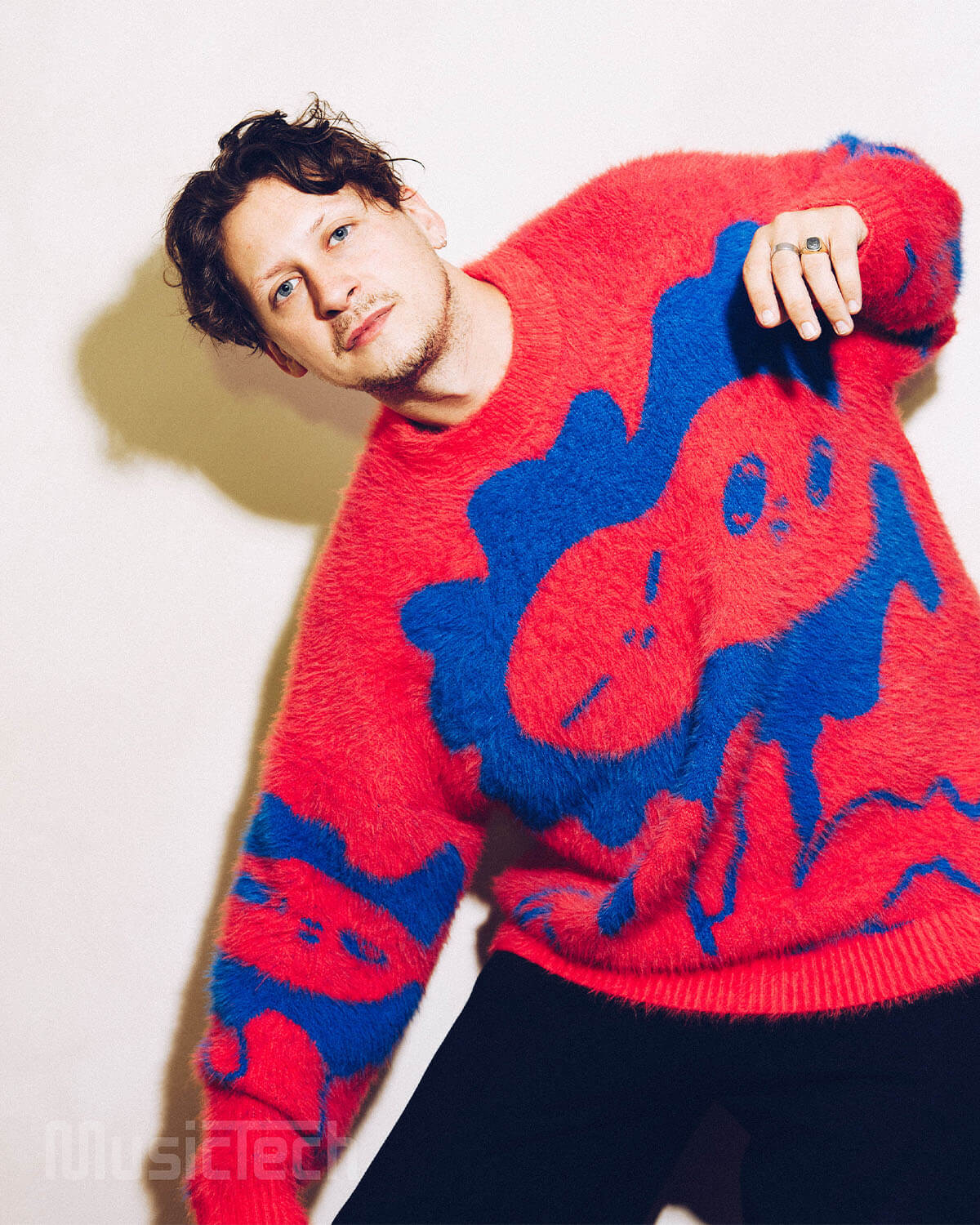
Pretty much the entire album was created using plugins and samples instead of any instruments, electronic or otherwise, he’d recorded himself. As you may therefore expect, in the age-old debate of plugins versus hardware, Josh sits on the side of software.
“Honestly, I think the differences between digital and analogue are so fine, that even if analogue is better, it’s not enough for the amount that people go on about it”
He’s an avid user of Omnisphere Spectrasonics, a versatile digital synth that’s “amazing for textures and ambience”, he says. Much like how producers add white noise to synths to thicken them out, Josh layers textured synths from here to add a real-life grittiness to them.
He’ll also layer this on piano keys, on a Korg M1 patch, and a TAL-U-No-LX Roland Juno-60 emulation. He also uses Arturia’s take on a classic Sequential Prophet-6 emulation for synth pads and stabs, which he says has “so much richness and warmth and depth to it”.
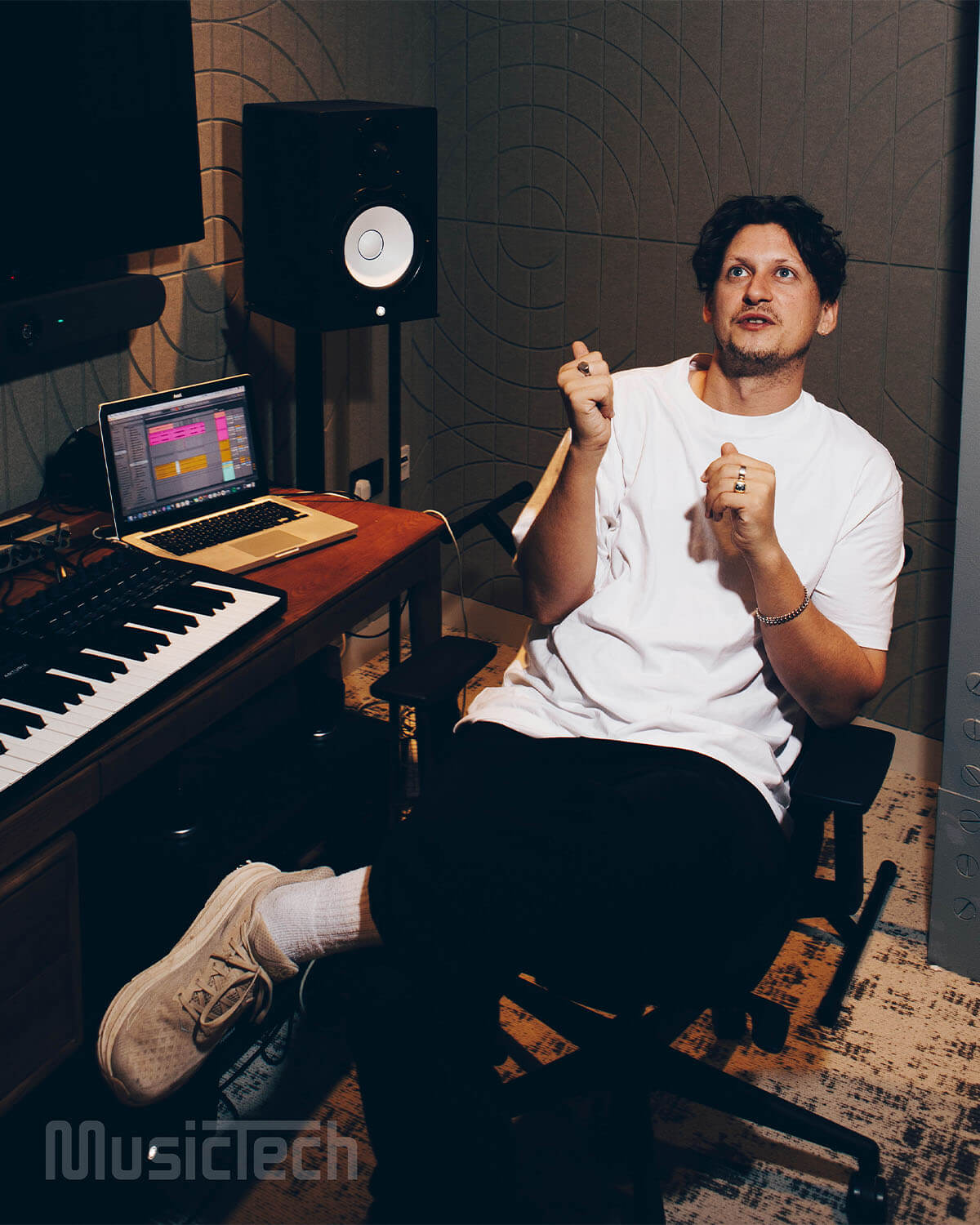
“I personally think you can get as good a sound with software,” Josh pitches in. “A lot of the time, I’ll bring in textures – tape hiss, vinyl crackle, all these different things into the tunes to make them sound more human.”
Josh emphasises that most people who produce music aren’t professional full-time producers; many do it for fun or as a hobby without making significant money. He suggests it’s crucial not to discourage these people by insisting that using hardware is the only valid approach to music production. In other words, he advocates for inclusivity and not imposing rigid standards on the process.
“Honestly, I think the differences are so fine, that even if analogue is better, it’s not enough for the amount that people go on about it,” he reiterates.
“It’s funny when I then get into a studio with other artists who’ve got loads of hardware. I’ve shared the studio with those guys for more than a year now and I was in there when I was making the album like three or four times a week. They’ve got a real Roland Juno-60 and I’m telling you, I’ve never wanted to use any of the hardware in there at all. My studio space is just a place for me to go and separate my studio from my home life.”
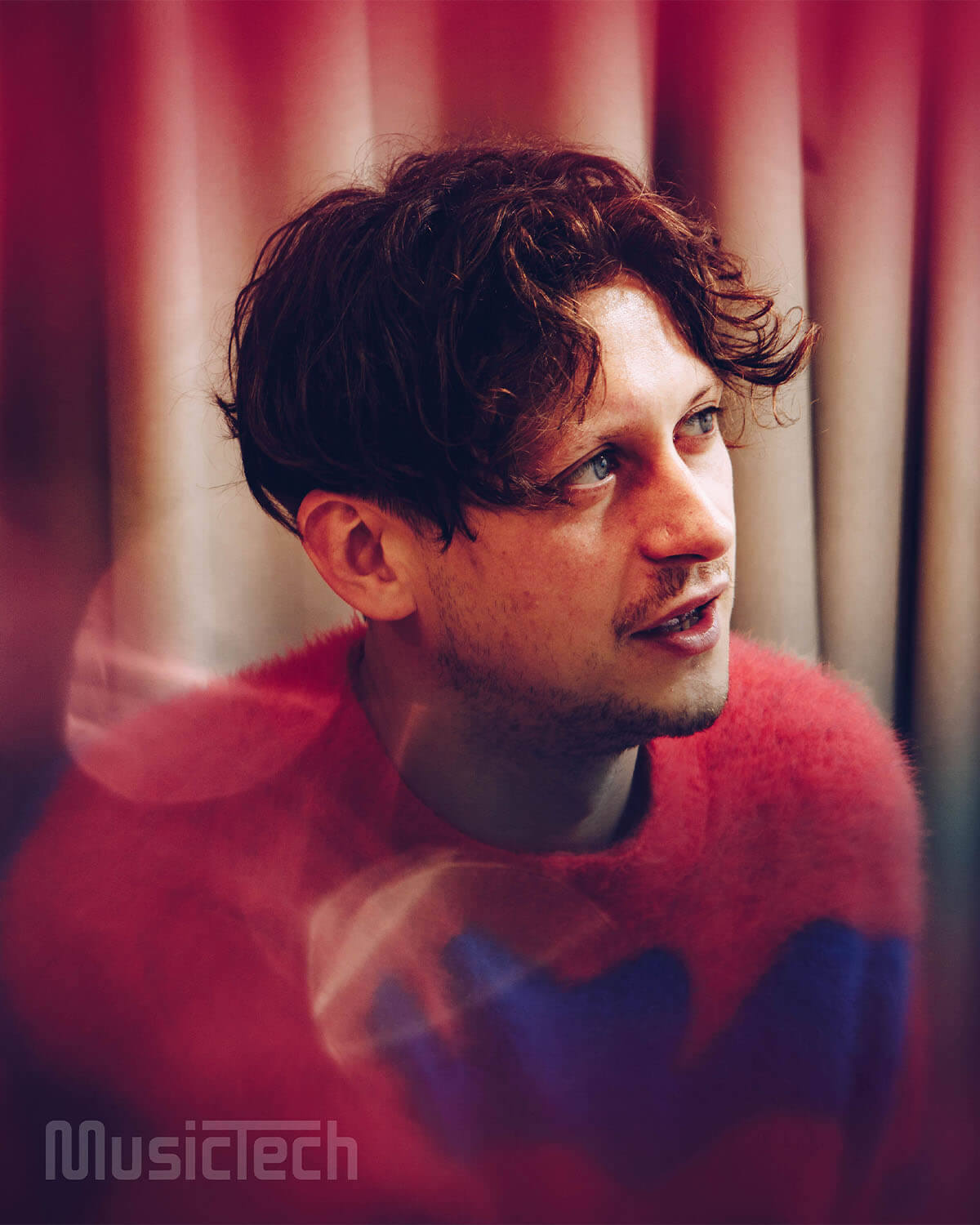
Josh has worked with a number of artists since his first offering, the self-released Because I Wanted You To Know, in 2019. The likes of Laurence Guy, Anish Kumar, vocalist Taite Imogen, have worked with him. On this album, although not strictly mentioned, we can hear the chopped-up vocals of Låpsley (on Woman), and there are features from fellow Edinburgh resident Blackboxx and singer and percussionist, Falle Nioki.
Josh hasn’t always been as open to collaborating, though, he’s previously admitted. As someone who heralds himself as much a musician as he is a producer, he finds himself working across all aspects of a project without having to accommodate for other, potentially contrasting, ideas. It all stems from being the main songwriter in a band before the Barry Can’t Swim alias was born.
“I’ve always been of the opinion that if you’re an artist or a musician, you should be making your own stuff. So many people in electronic music don’t… like… at all, right?
“To be honest,” he says, “when I was younger, I’d be writing all the songs and everything and I’d have all these ideas. It was frustrating when you had to factor in other people’s. I feel lucky that I got into producing because it perfectly suits my personality. Some find it easier to collaborate and bounce ideas off each other – I’m better just being there myself and fleshing things out.
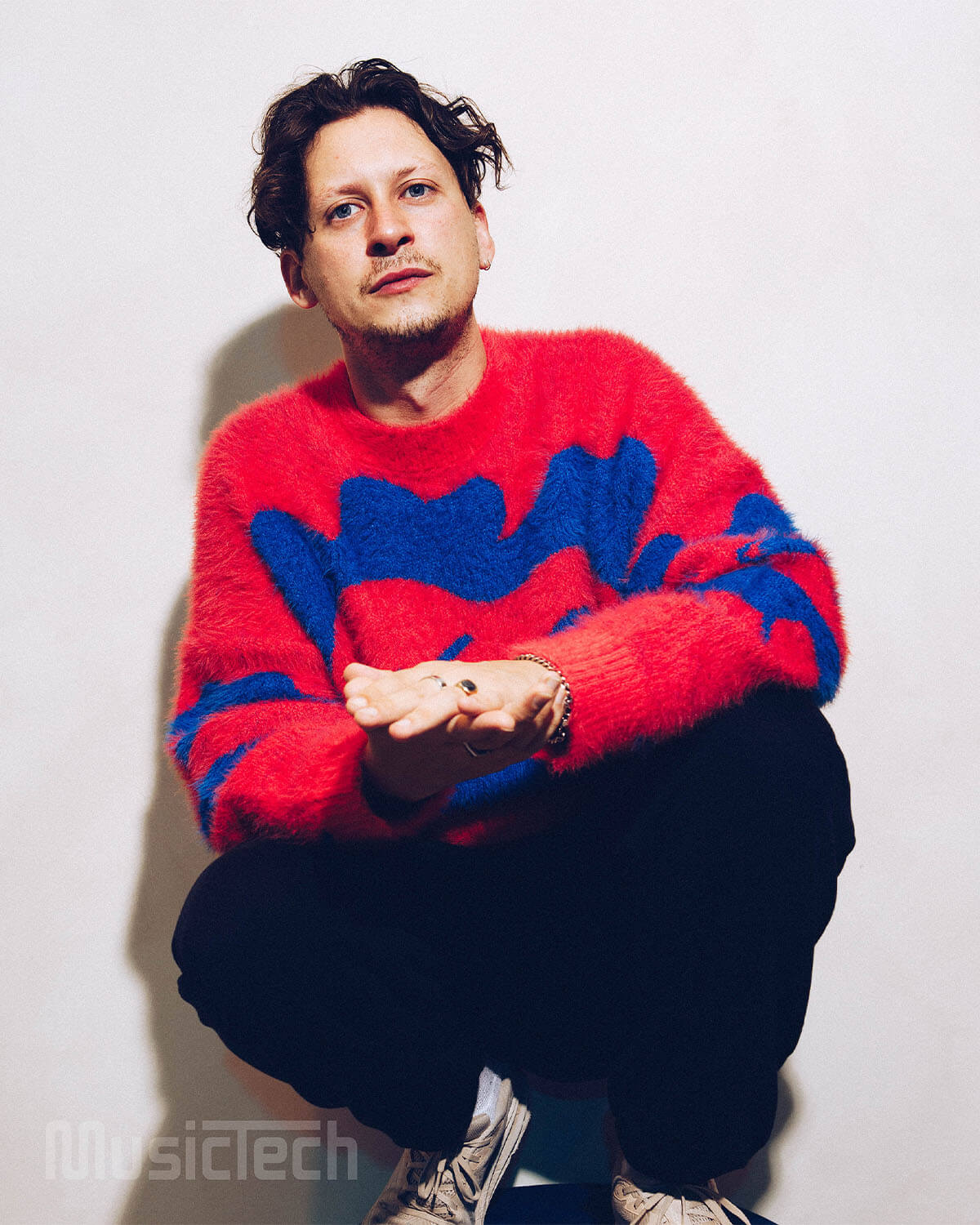
In a pretty dishonest world where many, he says, can be accredited for work they didn’t strictly do, he feels he can’t truly put his name to something if his input was minimal.
“I’ve always been of the opinion that if you’re an artist or a musician, you should be making your own stuff. So many people in electronic music don’t… like… at all, right? I’ve just always been autonomous about that. I couldn’t realistically call it my music if I wasn’t making it all myself. So there’s an element of that, too. That’s not to say that I don’t like collaborating, but I like having that autonomy over it.”
Barry Can’t Swim is an avid sampler and When Will We Land? is full of them. These intriguing snippets of audio play a part in the unique organic-electronic atmosphere of the release, where human voices and natural instruments combine with forward-thinking electronic synths.
“Sometimes I’ll go record shopping,” he says on his sample-sourcing process, “sometimes, I’m just digging on YouTube, or even Spotify. I’ve got a private Spotify playlist called ‘Samples’. I was on a train yesterday for three hours just digging for samples, and I ended up putting, like, three tunes in there.
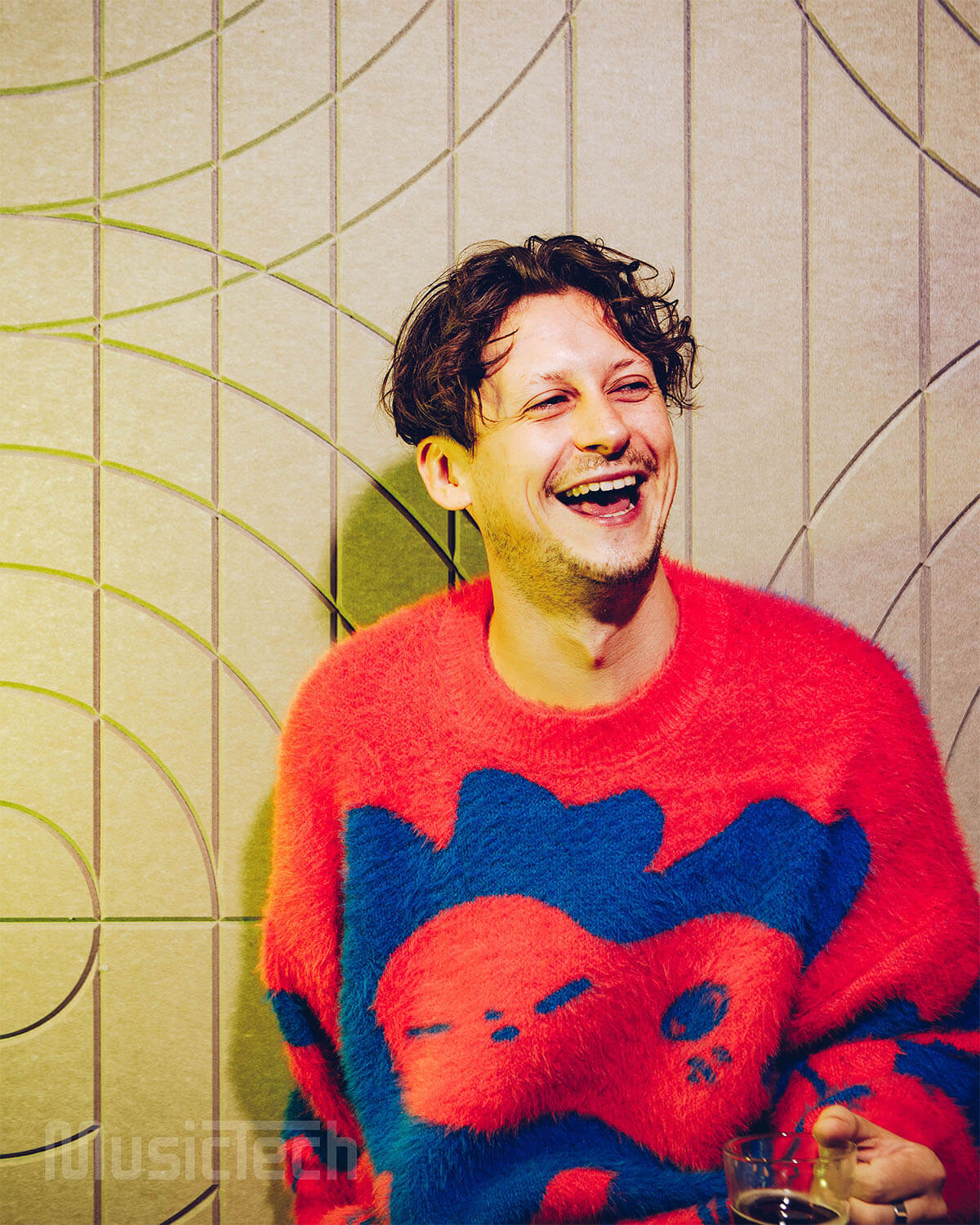
“Almost all of them I will never use, but it’s a bank and when I’m in the studio struggling for inspiration or ideas, I can just go, ‘right, I’m gonna go listen to that playlist’ – I’ll hit shuffle, and there’ll be something.
“Usually,” he says “I’ll start with a sample and build things around it. And then by the time I finish the tune, the sample won’t even be in there anymore. It was just a thing to trigger inspiration.”
All these techniques, styles and inspirations have come together for Barry Can’t Swim’s debut album. It’s a huge step up for Josh, and he’s not afraid to admit that the songs act as a doorway into a new chapter for his sound – one that’s more emotional and diverse, with an acute eye for musicality.
Josh certainly is the man of the moment, but it doesn’t seem to phase him. His relaxed demeanour and aura of honesty help carry him against a tide of disingenuous dance music and pompous producers. He may not be able to swim, but Barry makes beats that come from the heart. What more can you ask of an album debutant?
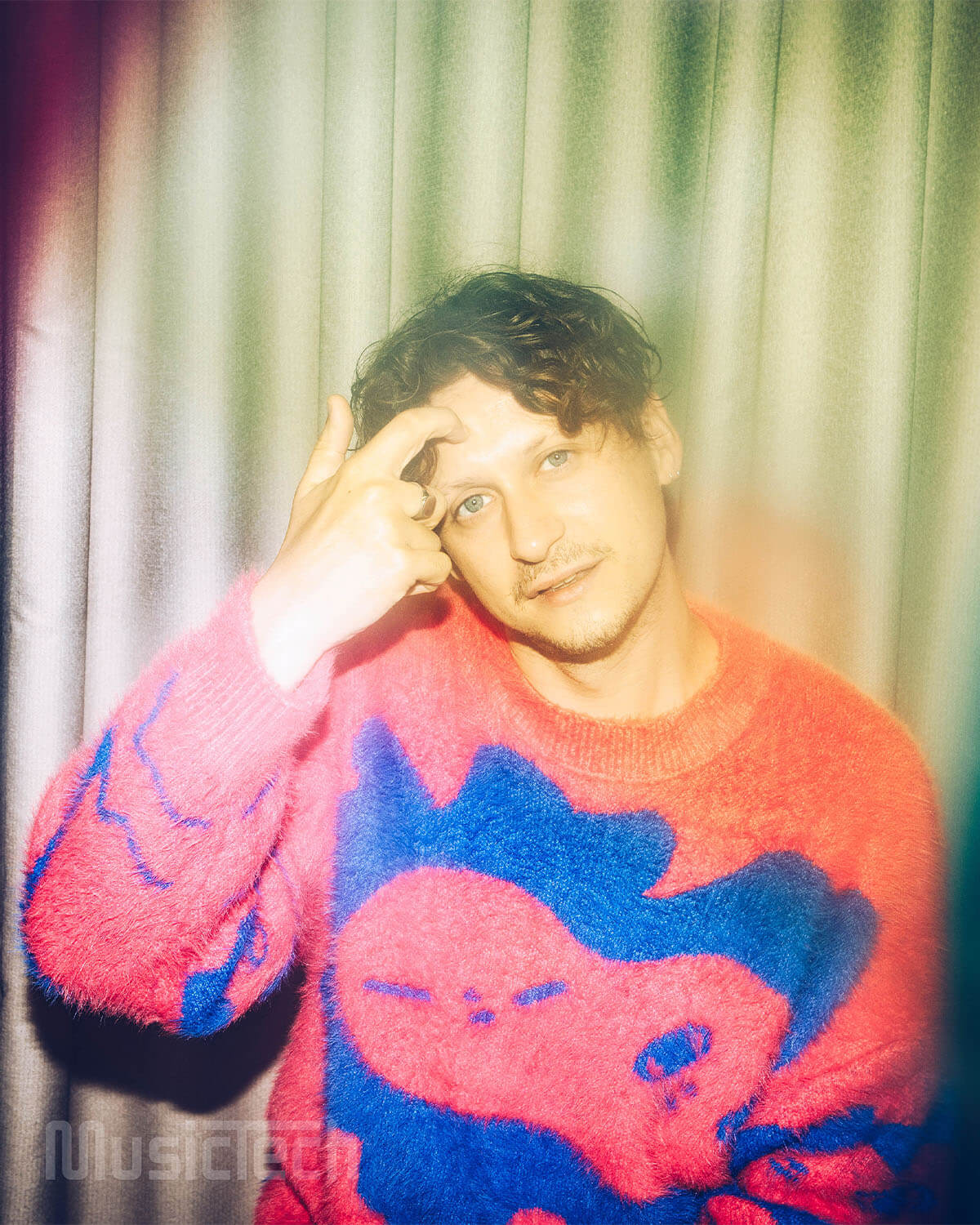
Barry Can’t Swim is embarking on a world tour soon, with tickets selling quickly. Buy yours via Barry Can’t Swim’s website.